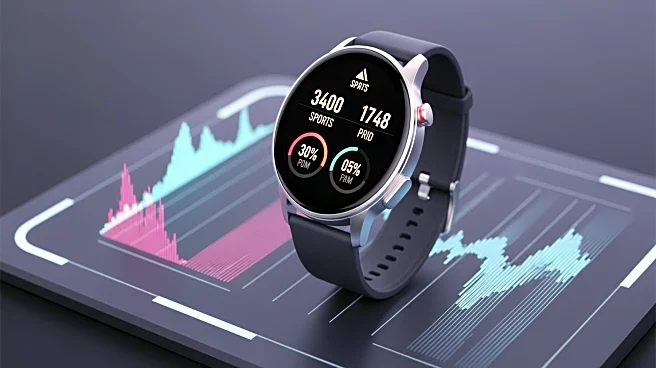What's Happening?
Sportradar Group AG, a leading global sports technology company, is revolutionizing sports marketing by leveraging real-time technology to create immersive experiences for sports fans and bettors. The company is utilizing its proprietary sports marketing technology,
which includes over 20 years of sports data, to dynamically adapt digital ads to sports moments and audiences. This approach allows brands to connect with fans during key emotional moments, such as a last-minute goal or a championship win, enhancing engagement and purchase intent. The global sports tech market is projected to grow by 21% annually, reaching over $40 billion by 2026, driven by the increasing demand for personalized, authentic, and contextually relevant fan experiences.
Why It's Important?
The integration of real-time technology in sports marketing is significant as it transforms how brands engage with audiences. By adapting to the emotional peaks of sports events, brands can increase their performance by up to three times. This approach not only captures fleeting attention but also delivers personalized experiences that resonate with fans. As sports continue to be a major draw for audiences, with three-quarters of the top US telecasts being live sporting events, the ability to connect with fans in real-time offers a competitive edge. Brands that master the timing, identity, and context of their marketing strategies can effectively turn emotion into engagement and attention into action, thereby boosting their relevance in the crowded marketplace.
What's Next?
Brands are expected to increasingly adopt Sportradar's real-time technology to enhance their sports marketing strategies. This involves weaving together the anticipation, adrenaline, and afterglow phases of sports events to maintain fan engagement from buildup to beyond the final whistle. As the technology evolves, brands will be able to serve ads that are more human and relevant, capturing the thrill of exact moments and turning emotion into engagement. The continued growth of the sports tech market will likely see more brands investing in these innovative solutions to stay ahead in the relevance economy.
Beyond the Headlines
The ethical implications of using real-time technology in sports marketing include concerns about privacy and data usage. As brands collect and analyze fan behavior, location, and emotion, they must ensure that they handle data responsibly and transparently. Additionally, the cultural impact of this technology could lead to shifts in how sports are consumed, with fans expecting more personalized and interactive experiences. This could influence the future of sports broadcasting and advertising, as brands strive to meet these evolving expectations.














